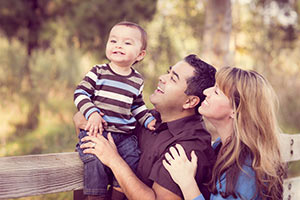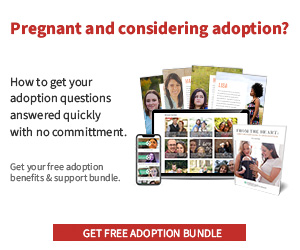ADOPTION IN
Nevada

Whether you’re considering placing a baby for adoption or hoping to adopt a child into your own forever family, an adoption agency in Nevada will be one of your best resources for support. The adoption process in Nevada can differ from other states, so working with professionals and getting all the information you can up front is in your best interest.
Adoption Near Me

Considering Placing Your Baby or Child for Adoption? You can learn more here or call an adoption counselor 1-800-236-7898.
Domestic Infant Adoptions can be completed through a Nevada adoption agency or adoption attorney. Click here to connect with an adoption professional.
International Adoptions must be completed through an accredited adoption agency and/or adoption attorney. You can learn more about international adoption here.
Foster Care Adoptions in Nevada can be completed through the Nevada Department of Health and Human Services.
Gallery of children waiting to be adopted.
Join the Nevada adoption group in our community!
Looking for more resources in your area? Check out the Adoption Directory for a listing of adoption professionals in your state.
I’m considering placing my baby or child for adoption.
Pregnant and have questions? We can help answer your questions by telling us what works best for you.
Are you pregnant and considering adoption? Do you need help getting started?
Click here and help us understand what your needs are and the preferences you have. We can help you get started.
Nevada Adoption
By: Susan Kuligowski
So you’re considering adoption in Nevada? As of FY 2018, according to the AFCARS Report, Nevada had 4,532 children in foster care, and 1,664 of them are waiting for adoption. Of those children, 779 have their parental rights terminated and are waiting for adoption.
Annually, across the United States, there are more than 125,000 adoptions. Be it private adoption or adopting children through foster care, especially those with special needs, there is always a need for families to adopt children. Independent or private adoption, agency or foster care to adoption, and international adoption are three popular pathways in Nevada to start your family or to grow your family.
While one of these avenues may be right for some prospective adoptive families, that doesn’t mean it is the one you have to take or should take. This article will walk you through the types of adoption and the common threads between all of the options starting with what prospective parents should consider and what you should do before you even begin the process of adoption in Nevada.
What Is Adoption?
When the word adoption is used about families, according to Adoption.org, it means that “a non-biological parent is becoming a legal parent to a child. The adopting parents will take care of the child and have every legal right to the child. They choose how and where the child is brought up. There are many different ways to create a family through adoption.” You can read more about what adoption means here.
Am I Ready to Adopt?
Adoption.com’s “How To Adopt A Child Guide” offers a 20-step overview of all things adoption. No. 2 on the list concerns asking yourself why adoption is for you and whether or not you are ready to take the journey: “This is a time for some serious soul-searching. It’s a good time to explore your reasons for wanting to adopt. Ask yourself: Do you long to provide a loving, stable family for a child to grow up in? Do you have a love that you want to share with a child? Do you want to help a child overcome some of the challenges he or she may have faced early in life? Are you willing to be there as a support for the child through thick and thin? Do you have a strong support system?
“If you have come to adoption because of infertility, have you fully processed your grief? Don’t go into adoption thinking that it will cure your infertility.
“Openly and honestly examine your reasons and motivations for adopting. Adoption is a permanent proposition that requires a lifelong commitment by everyone involved. You must adopt for the right reasons.”
Adoption is rewarding, but it is also a lifetime promise that you will be making to a waiting child. Make sure you have done your research and are ready for the challenges as well.
Who is Eligible for Adoption in Nevada?
Before you begin the process you’ll also want to make sure that you are eligible to adopt a child. According to the Nevada Division of Child and Family Services, this is who is eligible to adopt.
– “People of any race
– “People of any religion or no religious preference
– “People who work outside the home
– “People who rent or people who own their own homes
– “People with high or low incomes
– “People with or without other children
– “People over age 21; however, all applicants must be at least ten years older than the person being adopted
– “Married or single people; however, if married, the spouse must also be a party to the adoption.”
You will be required to complete a home study, which may involve:
– Completing an application
– Obtaining references from people who know you well
– Undergoing law enforcement, child abuse, and neglect screenings and fingerprint clearances
– Participating in interviews and home visits with an assigned caseworker
– Discussing and understanding the different types of children available and applicant’s preferences
Choosing an Adoption Agency in Nevada
As with any important decision you’re going to make in life, you must stop to consider all of your available options before settling on an adoption agency, carefully picking and choosing the one that fits the best. You should understand that your agency will play a major role in your adoption journey with the end goal of matching you with an adopted child. You can check out a list of licensed private child-placing adoption agencies here that includes contact information, fees, and services provided.
Make sure to research all available agencies and complete your due diligence. Checking out a website is a given; however, it’s important to understand that anybody can post inspiring photos and appealing bullet points. It’s much more important to check out agencies in person—attend an orientation meeting or speak one-on-one with a representative. Make sure to ask the big questions and the little questions—they are all important. Determine the agency’s views on adoption—how do they view the birth families, the children, the adoptive families? What are their fees compared to the other agencies that you have contacted? Talk to other families who are considering or who are already going through the process. What is your takeaway?
Just like no two adoptions are alike, neither are agencies. Do your homework and make sure that the agency is there to support you and work with you—not the other way around.
You can find adoption agencies as well as attorneys, consultants, and facilitators in Nevada here.
Financing Your Adoption
According to Child Welfare, Nevada prohibits a birth parent from obtaining financial benefits when he or she has no intention of completing the adoption. The site offers information concerning various fees often associated with private or independent adoptions, as opposed to adoptions completed through the foster care system, which typically involve minimal fees at best such as the home study and fingerprints. Additionally, Nevada waives fees when the family is adopting a child with special needs.
There is no fee to foster and adopt other than about $50 per person toward the cost of fingerprint clearances if you work with your local county. However, if you work with your local county and adopt a child from another state, there may be a fee. You can talk to the child’s state to see if they will reimburse you.
Private agencies provide adoption licensing services for a fee of $4,200 to $13,000 with private adoptions reaching up to high double digits. This number is high and can be attributed to several costs involved in the process, including advertising, counseling medical expenses, legal services, and in some cases, living expenses during the birth mother’s pregnancy and recovery.
Adoptive families can look into the federal adoption tax credit, as well as research possible loans, grants, assistance through employers, and consider traditional fundraising to help pay down expenses.
It is difficult to estimate the average cost to adopt internationally because each country has different requirements. Parents should make sure to ask their agency and facilitators upfront for a “menu” of anticipated services and fees, including your home study (which is still required although you may be adopting from another country and working with their legal system to finalize your adoption), U.S. Citizenship and Immigration Services application and registration, documentation and authentication (certifications, notarizations, apostilles) of paperwork, travel costs, and the legal fees needed to finalize or re-adopt in the state of Nevada.
Agency or Foster Care Process in Nevada
Nevada foster and adoption licensing requirements include:
– You must be 21 years old or older and to adopt a child, you must also be more than 10 years older than them.
– You can cover your financial needs with the amount of money you make.
– Your home environment needs to be loving and supportive for children.
– You must attend many hours of pre-service training.
– You can be married, single, or a same-sex couple.
– You must pass a background check. Any arrests or convicts on your record may stop you from fostering or adopting, make sure you talk to your caseworker about this.
Many infants available for adoption through public agencies are considered to be special needs. Families interested in non-special needs adoption should consider other options such as international or private adoption.
Independent or Private Adoption in Nevada
This type of adoption occurs when neither an agency nor the Nevada Division of Child and Family Services is involved in the process. The terms of the adoption and parental rights determination remain between the adopting parents and the birth family.
International Adoption Process in Nevada
While international adoptions mirror domestic adoptions in many ways, there are additional responsibilities and standards involved as you are required to comply with the country you are adopting from. It is important to note that the rules and regulations associated with international adoption vary by country.
You will still need to complete a home study and associated background check within the state of Nevada before you can be approved to adopt a child. It will be important for you to research adoption agencies who are familiar with international adoption—and even better if you’re able to connect with an agency that is licensed for international adoption and has had a lot of experience working with the country you hope to adopt from.
Finalizing Adoption in Nevada
You have to have everything in place and set before you can get a final decree of adoption from a judge. Make sure to follow-up with your caseworker for clarification as each adoption situation varies, so you may have different requirements that apply to your situation. Here are some general requirements that must be met such as the termination of parental rights, Interstate Compact on the Placement of Children clearance, and post-placement visits.
The adoption finalization hearing will be scheduled once all requirements have been met. Additionally, if you have adopted internationally, you may need to re-adopt your child to obtain a United States birth certificate.
Post Adoption Services
Various post-adoption services are available to adoptive families, adult adoptees, and birth parents, and other birth family members and may include:
– General adoption information and services referrals
– Resources, training materials, and classes for parents
– Information and resources focused on children with special needs
– Information on regional and national adoption support groups and advocacy organizations
– Adoptive search organizations for both adoptees and birth family members
– Information regarding Nevada’s State Adoption Registry
Information concerning the adoption will vary from agency to agency and is affected by circumstances agreed upon at the time of the child’s adoption.
Becoming a Family
While the above information and linked articles and websites provide an overview of how to navigate adoption in Nevada, your journey does not end once your child comes home, but rather, it is just the beginning.
Adoption.com offers many helpful articles and guidelines to help you through the initial transition of becoming a family. The article “How Can I Bond with My Adopted Child?” offers an overview of information concerning this very important aspect of becoming a family through adoption. While “The Basics of Bonding and Attachment. A Guide.” presents ways that you can reach out to your adopted child at any age.
No matter what path you decide to take to adopt a child, it’s important to be open-minded and always ready, and willing to learn what you don’t know. Many adoptive families find it helpful to lay the foundation for resources and support groups ahead of the adoption—from reaching out to pediatricians and medical professionals familiar with adoption to your local school district, to community organizations. Sharing your plans and educating involved family and friends will also prove invaluable to you and your adopted child throughout the process and well after placement.
You can learn more about the support available to families who adopt in your state by visiting the following sites:
– Division of Child and Family Services, Post Adoption Services
– Foster and Adoptive Coalition of Nevada
Next Steps for Adoption in Nevada
If you are interested in adopting a child in Nevada, you can start by researching the Nevada Department of Human Health and Services Division of Child and Family Services website today.
Nevada Adoption Guide
The information contained on this website is for educational purposes only and is not intended to be a substitute for professional legal advice. Always seek the advice of a licensed and qualified professional. While the content of this website is frequently updated, information changes rapidly, and therefore, some information may be outdated, and/or contain inaccuracies, omissions, or typographical errors.
Can I Adopt in Nevada?
Applicants must be 21 years old or older (also 10 years older than the child). You can own or rent a home. Parents can be single, married, or divorced. You must be a legal resident of Nevada and own a landline phone. Parents will need to successfully complete a home study. As part of this process, applicants need to submit a criminal background check, character references from individuals who know the family, and a physical/mental background check showing the parents are in good health.
What Adoption Regulations Exist in Nevada?
Advertising: Only adoption agencies can advertise a child’s information for adoption placement purposes. In all advertisements the adoption agency must state that they hold a valid license and show the license number. No person can place or assist in the placement of a child without first securing a valid license. § 127.283; 127.310; 127.240; 127.290(1); 127.285(1)
Relinquishment: Unmarried fathers may consent to an adoption before the birth of the child. Birth mothers must wait at least 72 hours after birth of the child to give consent. A consent given from an unmarried father becomes invalid if: he marries the mother before birth of the child, the mother does not consent to an adoption before the child is 6 months old, or no petition has been filed within 2 years after birth of the child. § 127.070; 127.080
Birth parent expenses: A person may pay birth related medical and reasonable living expenses for the birth mother, so long as the payment is not contingent upon consent or placement of the child from the natural parents. § 127.287(3)
Post-adoption contact agreements: Contact agreements between birth and adoptive parents are legally enforceable in Nevada. § 127.187; 127.1885
Birth father rights: Unmarried fathers may have their name entered on the child’s birth certificate if at the time of birth the father signs a voluntary acknowledgement of paternity. A declaration of paternity establishes a parent child relationship, and the father gains the right to receive notice of adoption proceedings. § 440.280; 440.283; 126.053
Finalization: Out of 726 adoptions completed in 2014, the average time between TPR and adoption finalization was 111.2 months. (acf.hhs.gov)
Is Adoption Assistance Available in Nevada?
Can I adopt a Child from another country?
It is always possible to adopt a child from another country, even if you live in the United States. Children under 18 adopted from a Hague Convention country entering the U.S. with an IH-3 visa may automatically receive U.S. citizenship.
Children adopted from a non convention country must qualify as orphans before receiving U.S. citizenship. When U.S. citizens finalize an adoption abroad, they must apply to the USCIS for an IR-3 visa for the child. An IR-3 visa classifies the child as an immigrant and provides the child with citizenship upon arrival in the States.
In Nevada hopeful adoptive parents wishing to receive a State birth certificate for their child must submit a validation or readoption of foreign adoption decree.
State Contacts
Gallery of children waiting to be adopted: https://adoption.com/photolisting?page=1&search_type=region&range=UnitedStates
State subsidy contact:
Ashley Hice
Department of Human Services
Division of Child & Family Services
4126 Technology Way, Third Floor
Carson City, NV 89706
Phone: 775-684-4454
Fax: 775-684-4456
Email: ashleyhice@dcfs.nv.gov
Summary
Adoptions in Nevada can be completed through the Nevada Department of Health and Human Services.
Applicants must be 21 years old or older (also 10 years older than the child). You can own or rent a home. Parents can be single, married, or divorced. You must be a legal resident of Nevada and own a landline phone.
Only adoption agencies can advertise a child’s information for adoption placement purposes. Unmarried fathers may consent to an adoption before the birth of the child. Birth mothers must wait at least 72 hours after birth of the child to give consent.
A person may pay birth related medical and reasonable living expenses for the birth mother. Contact agreements are legally enforceable. Unmarried fathers may have their name entered on the child’s birth certificate.
The average time between TPR and adoption finalization in 2014 was 11.2 months.










